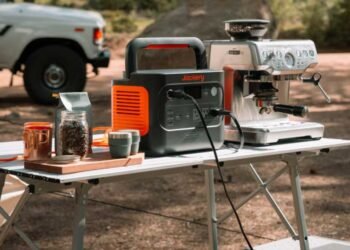Introduction to Boating
Boating is a captivating hobby that appeals to adventurers and nature enthusiasts alike. The allure of navigating through serene lakes, winding rivers, and expansive ocean waters is irresistible, offering both tranquility and excitement. As newcomers embark on their boating journey, it’s crucial to comprehend the basics that underpin this activity. Understanding boat types, from sleek motorboats to classic sailboats, helps tailor your experience to your interests and needs.
Choosing where to purchase a boat is equally important. Exploring trustworthy Ranger boat dealers can provide peace of mind and ensure you start safely with a reliable vessel.
Essential Safety Gear for Boaters
Safety on the water cannot be overstated, especially for novices gaining sea legs. Key safety equipment is not optional but mandatory to ensure protection during your escapades. Life jackets are the most fundamental gear, serving as an essential safety net. Fire extinguishers, flares, a whistle, and a first aid kit are vital components of a well-prepared boater’s arsenal. Additionally, keeping your vessel in top condition is just as important as carrying safety gear—regular maintenance and timely visits with expert boat repair near me services can prevent mechanical failures that might put you at risk. Preparing a thorough pre-departure checklist guarantees readiness against unexpected occurrences.
Basic Boating Terminology You Should Know
Grasping the basic boating terminology is akin to learning the sea language. It facilitates smooth communication and operational precision on each trip. Terms like bow (front) and stern (back) are directional references critical for safe navigation, while port (left) and starboard (right) keep courses accurate and emergency maneuvers deft. Familiarity with these terms is foundational for effective teamwork among the crew and contributes to a safe voyage.
Understanding Boating Rules and Regulations
As with any mode of transport, boating comes with a set of rules and regulations designed to keep you and others safe. Knowing speed limits, following navigational markers, and maintaining the required distance from swimmers and other boats are essential practices. Boaters must also carry relevant documents like registration and licenses to ensure the legality of their journey.
The boating regulations by the U.S. Coast Guard are an excellent resource to consult for a comprehensive overview of the laws applicable in your region.
Weather Considerations for Boating
Weather conditions can make or break a boating adventure. Clear skies and calm seas are ideal, but knowing how to handle unexpected weather is crucial. Understanding the local weather patterns and reading weather forecasts are key skills to safeguard against mishaps. Recognizing conditions like high winds or impending storms should prompt reevaluation or postponement of outings for safety’s sake.
Checking weather updates and alerts should become a habitual part of your boating routine for enhanced safety and pleasure.
Tips for Efficient Boat Maintenance
Efficient maintenance of your boat secures its longevity and optimal function. Regular hull cleaning prevents wear and tear, while engine checks ensure peak performance. Pay attention to electrical systems, fuel lines, and moving parts to identify and rectify potential issues before they escalate. Establishing a seasonal maintenance routine, including proper storage, protects against off-season damage and keeps the vessel in ready-to-sail condition.
Keeping detailed maintenance logs can provide insights into usage patterns and highlight necessary adjustments, ensuring your boat remains seaworthy through the years.
Common Mistakes to Avoid as a New Boater
Embarking on your initial boating trips might be accompanied by a few rookie mistakes. Overloading the vessel, skipping safety checks, and underestimating weather conditions are common missteps that jeopardize safety and dampen your boating delight. New boaters are encouraged to learn from experienced enthusiasts, gathering insights from seasoned mariners through forums and clubs.
This continuous learning process not only enhances proficiency but also ingrains critical safety habits essential for every boater.
Additional Resources and Conclusion
The journey of becoming a proficient boater is paved with curiosity and commitment. Exploring resources like nautical courses, safety workshops, and literature enriches your knowledge base.
Embrace the serenity and adventure of the open waters with a focus on preparation and education.












